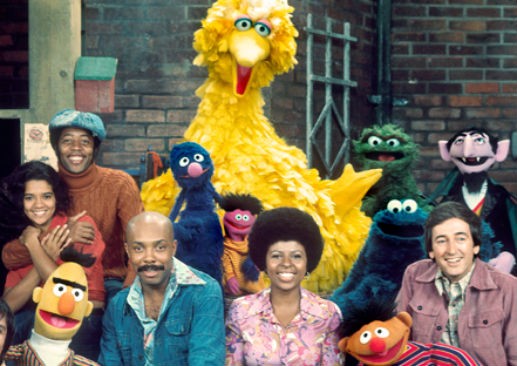Last week Sesame Street signed a new partnership deal with HBO, which means that new episodes of the show won’t air on PBS first.
Instead of being publicly accessible to all kids, the series will launch on the premium cable network HBO. This deal has many socioeconomic implications, which we’ll explore below.
But on the upside, the long-running educational series will not only be able to stay on the air, but be able to produce twice as many episodes. As NPR’s David Folkenflik says, “The new Sesame Street deal is all about economics.”
Slate points out the possible historical impact of this move, and gives a history how the Muppet series ended up on PBS in 1969.
PBS producer Joan Ganz Cooney had a vision that by leveraging television (and Henson’s muppets), it could even the playing field between affluent and underprivileged children, by giving them all the same learning opportunities without concern for cost.
It would teach numbers and letters to children who might not have access to early education opportunities. In the 1960s, as today, early education was in the spotlight as the nation gripped with the effects of poverty on children.
Now that the show shifts to a paid network, there is logical gut concern that Sesame Street is taking a step backwards from this initial mission statement.
Many see it as a move that will give an advantage to kids whose parents can afford the additional paid cable cost (or an HBO Now subscription), as they will have first access to the long-running educational series.
That said, PBS is going to continue to air repeat episodes of Sesame Street, but will air these newer HBO-first episodes nine months later.
The target toddler audience (ages 3-5) will still get the same educational benefit out of the existing PBS episodes, without having to shell out money, though parents may notice a delay in new episodes.
Only one-third of the audience actually watches the show on traditional television, which was a major factor cited by PBS. Nearly two-thirds of viewers access the show via streaming media or apps, and that’s why HBO wanted to broker this deal.
This great article by Time says that bringing this landmark show to its network, HBO can increase its streaming revenue, and this can help it better compete with the likes of Amazon Instant and Netflix.
This deal is a boost to Sesame Street, too. The series has been facing financial struggles, brought about in large part by the decrease in DVD sales, as technology rises. It only receives 10 percent of its revenue from PBS stations.
There are others who are concerned about how the children’s program will fit with a network that draws in subscribers with the graphic likes of Game of Thrones and True Detective, but this is not the first time HBO has fostered a deal with Henson.
Another one of Henson’s creations, Fraggle Rock, was funded and created for the cable network back in the 1980s, and aired there first and then later was syndicated out to the Disney Channel and TNT.
And besides, Sesame Street has already done a Game of Thrones parody.
For story ideas, talk to your local PBS station, and to parents (and kids, if you’re allowed). Will the deal have any impact on fundraising? How important a factor is Sesame Street in educating your local children? Ask your audience if they watched Sesame Street when they were young. Did it affect the way they learned?











